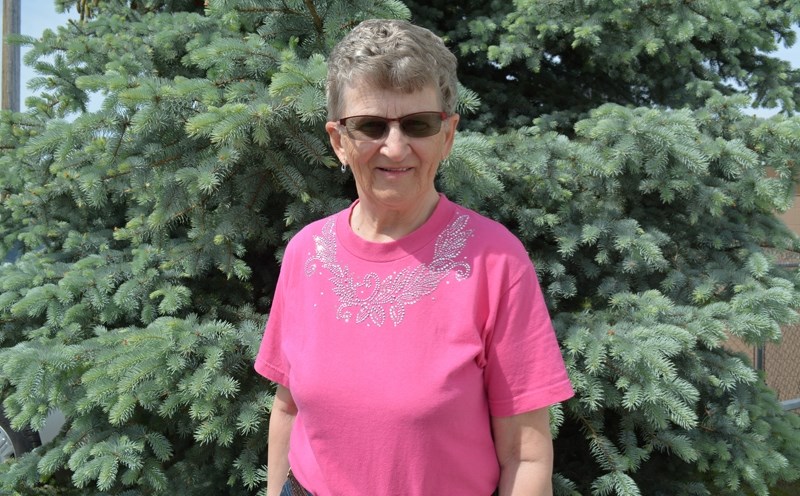Elk farming may not be very common across Canada, but is an industry Eleanor Saunders has dedicated her life to.
Saunders and her husband Allen are owners of Antler Hill Elk Ranch in Red Deer County and have been in the business of breeding and raising elk naturally for nearly 20 years, since 1998.
“When we started I wanted to focus on the needs of the entire industry -- not only the meat but the velvet and the hard antler too,” said Saunders. “(By) focusing on the velvet for the nutrients we could help the body.
“For me it's a passion,” she added, noting several unique aspects to their business.
“We are uniquely different from everybody else out there because the industry feeds (elk) grain,” said Saunders. “Everything here is natural – no antibiotics, no hormones; we don't even fertilize the grass they graze,” she said, noting the health benefits elk can provide.
“A lot of people assume that the primary benefits of elk are specifically meat, but it's not. Elk is the most diversified species in the agricultural industry.”
Saunders noted that while they do raise the elk for meat, they also produce a very unique product called velvet antler. It's a health product that comes in powder form and in capsule form and provides many health benefits.
“Once you get past the velvet (stage) then it becomes hard horn and you've lost your potency in the antler. We harvest for potency,” she said. “We are very potent in the product we produce.”
Velvet is harvested in the summer, usually in June. With the velvet they harvest they produce a product called Peak Performance. It is a product shipped all over North America today.
“We still cull 20 per cent of the herd each year because we are constantly trying to improve for the demands of the day,” she said. “That meat is lowest in cholesterol, lowest in fat, while being very high in protein. It is an extremely healthy choice and it's very tasty,” she added.
One reason why they are so successful with elk farming and the elk ranch is because of the genetic line they use said Saunders, pointing to their herd of 25 superior elk.
“It's about genetic basics,” she said. “They have to be big enough to breed as yearlings, calve as two-year-olds, have high fertility and excellent mothering ability,” said Saunders of the female elk and their genetic traits.
She noted the importance of ensuring the velvet antler heritage or lineage as well.
“You also want an animal that is going to produce that antler that we're after,” she explained, adding that she uses that (velvet antler) as a tool to identify predictability and consistency -- two key components in elk breeding and genetics.
“I have focused on the female side of the industry -- consistency, the high productivity and the mothering,” she said. “I have always utilized top-quality genetics (in the elk herd).
"When we started I wanted to focus on the needs of the entire industry -- not only the meat but the velvet and the hard antler too." Eleanor Saunders



